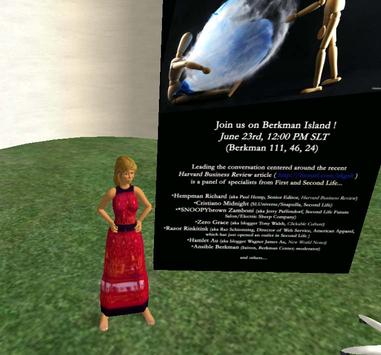SmartClassroom
Margaret Price, Director of Spelman’s newly-instituted Electronic Portfolio Project (SpEl.Folio) discusses the questions, challenges and goals of the successful implementation of e-portfolios.
“…I’ve come to realize that a central question of our project is, “What is an electronic portfolio?” Is it a medium? Is it a genre, or a set of genres? Is it a delivery system? Is it an assessment tool? Is it a means to reflection and learning? Is it a savvy career move? Is it a flashy new container for the work students already are doing? Is it a pain in the butt?
Readers of SmartClassroom have thought about these questions, and probably have well-developed responses to them. But the audience that concerns me most is the students and teachers at Spelman, a historically black liberal-arts college for women. They sometimes seem to view the electronic portfolio as a flashy container and/or pain in the butt. It’s this audience, and the perceptions they ultimately form, on which the success of Spelman’s project relies. And, as frustrated as I might get when explaining for the hundredth time that an eFolio is not simply in Kathleen Yancey’s memorable phrase “print uploaded,” I must pay attention to these responses. For, if the users and authors of SpEl.Folio view it merely as a flashy container or pain in the butt (or both), that’s exactly what it will be.
What Is the Purpose of an Electronic Portfolio?
The Future of DIgital Education (Virtual Conference)

How will higher education evolve to accommodate digital technologies in the classroom, changing sensibilities among students and new forms of knowledge, learning and expression?
This panel discussion will address some emerging challenges posed by the use of digital media, social networks and games within educational contexts. Panelists will speak from a wide range of recent experiences with teaching in virtual or hybrid learning environments and suggest strategies for the future.
Panelists include Rebecca Nesson of Harvard Law School, Douglas Thomas of USC’s Annenberg School for Communication, Michael Eisenberg of the University of Washington Information School and Henry Lowood of Stanford University. The panel will be moderated by Steve Anderson of the USC School of Cinematic Arts.
Please join us on Berkman Island in Second Life on November 13 at 4:00 (PST/SLT). This panel is sponsored by the MacArthur Foundation’s Initiative on Digital Media and Learning and generously hosted by Harvard Law School’s Berkman Center for Internet & Society.
Participation is limited to 45 audience members, so sign in early.
If you already have a Second Life account, use this SLURL to teleport directly to Berkman Island http://slurl.com/secondlife/Berkman/114/53/24
Accounts in Second Life are free, but they take a few minutes to set up, so you should plan on signing in, creating your avatar and doing some exploring well in advance of the panel. To start your second life, login here: https://secondlife.com/join
Zotero: The End of EndNote?
 Just before the web burst into public consciousness, historian Roy Rosensweig demonstrated the power of multimedia to make history come alive with his CD-ROM “Who Built America.” Continuing to explore the possibilities of applying technology to scholarship, in 1994 Rosezweig founded the Center for History and New Media at George Mason University. As part of its mission to “combine cutting edge digital media with the latest and best historical scholarship,” the CHNM has created several tools useful for scholars. Zotero is the latest of these tools. It is described as a “next-generation research tool that makes it easy to gather, organize, annotate, search, and cite materials you find online and off” and is being called the “EndNote replacement” by many.
Just before the web burst into public consciousness, historian Roy Rosensweig demonstrated the power of multimedia to make history come alive with his CD-ROM “Who Built America.” Continuing to explore the possibilities of applying technology to scholarship, in 1994 Rosezweig founded the Center for History and New Media at George Mason University. As part of its mission to “combine cutting edge digital media with the latest and best historical scholarship,” the CHNM has created several tools useful for scholars. Zotero is the latest of these tools. It is described as a “next-generation research tool that makes it easy to gather, organize, annotate, search, and cite materials you find online and off” and is being called the “EndNote replacement” by many.
The School of Second Life

Wagner James Au, writing in Edutopoia, 2006.11.08, “The School of Second Life: Creating new avenues of pedagogy in a virtual world” writes …
For those who grew up on computer and video games over the past thirty years, it’s no surprise that games have become a full-fledged educational tool, merging play with learning in a way that speaks to the digital generation’s technical literacy. Adding heft to this development, the Federation of American Scientists recently published the results of a year-long study suggesting that games have the power to teach analytical skills, team building, and problem solving on the fly.
Among the most powerful platforms for game-based teaching is Second Life, a virtual world superficially similar to online role-playing games such as World of Warcraft or Sims Online but embedded with numerous features that can make it an ideal pedagogical resource.
Article continues at www.edutopioa.org/1709
Tags: Learning, Games
“Sentences are smarter than the grunts of bullet points.” —Edward Tufte

We were talking today, again, about that recurrent concern over the reliance on PowerPoint for presenting complex concepts or sharing knowledge. I recently read Edward Tufte’s Beautiful Evidence and the second edition of his powerful PowerPoint essay is quoted in the title of this post.
It’s a perpetual teaching/learning issue. Not only is PP increasingly relied upon to support lecture, but more students are required to submit their course work in this format.
Some questions that I feel are worth asking are, Do bullet points and pictures inspire or require smart and rigorous thinking? How much of the blame for bad (i.e., diminishing, boring, soporific, flattening…) PowerPoint presentations lies with the user and how much with the tool?
Read more on Edward Tufte’s blog.
Chicago Manual of Style Goes Online
 After 100 years as a print publication, the Chicago Manual of Style has finally made it online. It will not be free, but I expect the UVM library will get a subscription.
After 100 years as a print publication, the Chicago Manual of Style has finally made it online. It will not be free, but I expect the UVM library will get a subscription.
In addition to the manual itself, the web site offers a Q&A section, some tools and tips, and a FREE citation quick guide that covers the most common reference types. The latter may be all most students need.
Of course, if you are using the bibliography program, EndNote, you don’t have to worry about any of that as EndNote will format your references and citations in Chicago Style with no fuss on your part. UVMers can get EndNote for free from our software site. Check the CTL events calendar for workshops on EndNote or see the Library’s EndNote support page for more information.
Social Software for Teaching and Learning : Insights from Early Adopters

Where: University of Massachusetts, Amherst
When: November 14, 2006
What: This NERCOMP workshop will consider how social software (weblogs, wikis, social networking websites, and virtual worlds) can alter and expand the dynamics of classroom and distance education interactions. Presenters will offer observations and guidance drawn from their own practice. Participants will see from example how to apply social software to particular pedagogical needs, and will learn from teachers with experience using these tools what has worked for them and what needs further thought and refinement. We will look at how social software can be used to foster both community ties and constructivist pedagogy. Well consider whether their pre-college experiences using social networking websites like MySpace make todays entering students more open to collaborative learning than were their predecessors. And well discuss some social networking opportunities that might be of interest to professionals working with educational technology.
More: For a full schedule and registration information, please go to:
http://www.nercomp.org/events/event_single.aspx?id=615
To view other NERCOMP events, click here: http://www.nercomp.org/events/upcoming_events.aspx
Professor Asked to Stop Selling His Lectures
 Robert L. Schrag, a professor of communication at the University of North Carolina, Chapel Hill, had been offering his students an MP3 copy of his lectures; the lectures were sold via an online company, Independent Music Online, for $2.50, with the professor receiving $1 per sale.
Robert L. Schrag, a professor of communication at the University of North Carolina, Chapel Hill, had been offering his students an MP3 copy of his lectures; the lectures were sold via an online company, Independent Music Online, for $2.50, with the professor receiving $1 per sale.
A student in his class reacted favorably to his project. “It’s a pretty neat idea, but he also told us in class that you’re going to get the most if you come to class and hear the lecture firsthand, so it’s really a matter of choice,” NCSU student Audrey Wilson said [1]. The student newspaper, the Technician, ran an article [2] also giving a favorable impression, but the editors of the paper disagreed [3] – wondering if this was a ripoff [should missing class be so expensive :)?].
The Dean of the College of Humanities and Social Sciences was bothered by the practice and wanted time to think about it, and communicated this to Prof. Schrag who has, for the time being, removed the lectures from the site. UNC policy, however, allows professors to retain sole ownership of materials that they produce in their classrooms. [4]
Microsoft creates future workers

PHILADELPHIA, Pennsylvania (AP) — Microsoft Chairman Bill Gates has famously called high schools “obsolete” and warned about their effect on U.S. competitiveness. Now, his company has a chance to prove that it can help fix the woes of public education.
After three years of planning, the Microsoft Corp.-designed “School of the Future” opened its doors Thursday, a gleaming white modern facility looking out of place amid rows of ramshackle homes in a working-class West Philadelphia neighborhood.
The school is being touted as unlike any in the world, with not only a high-tech building — students have digital lockers and teachers use interactive “smart boards” — but also a learning process modeled on Microsoft’s management techniques.
Read entire article at: CNN.com – Windows HS: Microsoft designs a school system – Sep 7, 2006
At $9.95 a page, you expected literature ?
 Yesterday’s New York Times contains an article [2] by Charles McGrath investigating the custom essay and term paper marketplace. Using his real name and real credit card, he purchased 3 essays from commercial firms specializing in custom wiring. He then send the writing samples to several college professors asking them to evaluate the submissions and assign them a grade.
Yesterday’s New York Times contains an article [2] by Charles McGrath investigating the custom essay and term paper marketplace. Using his real name and real credit card, he purchased 3 essays from commercial firms specializing in custom wiring. He then send the writing samples to several college professors asking them to evaluate the submissions and assign them a grade.
The good news about the papers was that they were badly enough written to not seem like commercial products. The bad news was that they were so badly written that the student would be lucky to receive a “D.” Most of the professors seemed to sense something wrong, and said that they would want to meet and talk to the student.
The article has a couple of nice bonus items … a description of the assignment as well as links to the actual papers purhcased. It would have been interesting to run these by, for example, graduate teaching assistants typical of those at many larger universities who are normally assigned to first year courses – and may not have much experience with papers, with grading, and with cultivating undergraduate writing skills.
